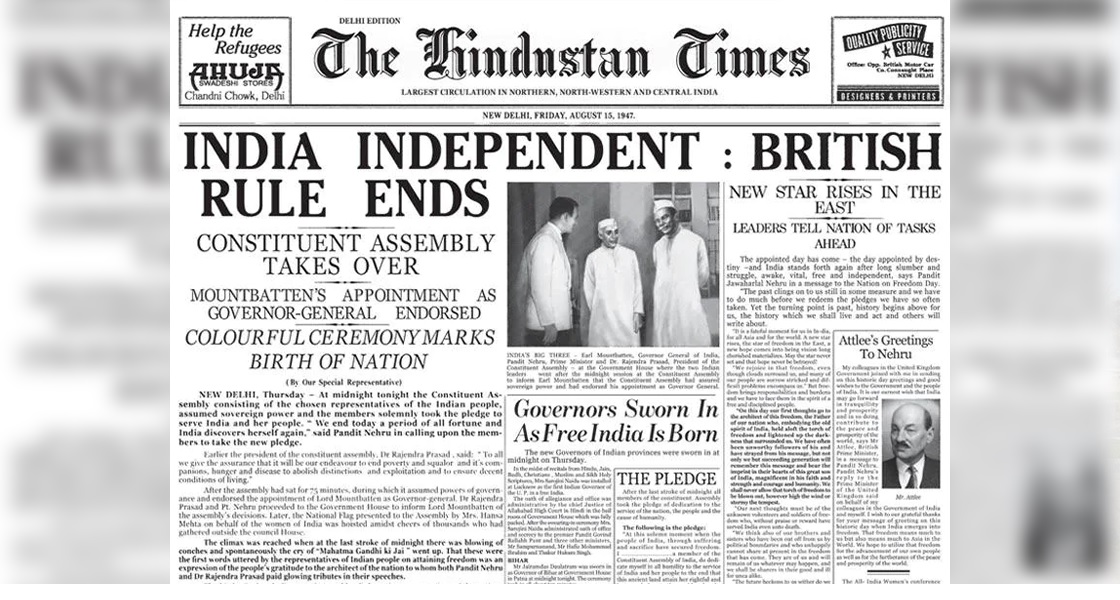Introduction
Every year on the 15th of August, India comes alive with vibrant celebrations, patriotic fervour, and a deep sense of gratitude as it commemorates its hard-fought independence from British colonial rule. This day, etched in history as a symbol of freedom, represents the culmination of decades of relentless struggle, unwavering determination, and the sacrifices of countless heroes. As we gather to honour India’s Independence Day, it’s an opportune moment to reflect on the nation’s journey, its achievements, challenges, and the values that bind its diverse population.
The Historical Prelude
To fully appreciate the significance of India’s Independence Day, one must delve into the annals of history and understand the magnitude of British colonialism’s impact. For nearly 200 years, India suffered under the weight of imperial rule, enduring economic exploitation, cultural subjugation, and the denial of fundamental human rights. The scars of this era ran deep, but they also stoked the flames of resistance that would ultimately lead to the dawn of a new era.
Pioneers of Change
At the forefront of India’s fight for freedom stood a remarkable array of visionary leaders, each contributing their unique approaches and philosophies to the cause. Mahatma Gandhi’s philosophy of nonviolent resistance ignited a fire in the hearts of millions, mobilizing them in the pursuit of swaraj, or self-rule. His iconic Salt March and the civil disobedience campaigns exemplified the potent force of peaceful protest.
Jawaharlal Nehru, a staunch advocate of modernity and social justice, envisioned a free India that would embrace scientific advancement and equitable opportunities. Sardar Patel, the “Iron Man of India,” played a pivotal role in uniting the diverse princely states to form a united nation. Subhas Chandra Bose, with his fervent patriotism, formed the Indian National Army to challenge the British from outside its borders.
The Path to Independence
India’s journey to independence was fraught with trials and tribulations, marked by countless acts of defiance and sacrifice. The Jallianwala Bagh massacre, the Quit India Movement, the Round Table Conferences, and the immense bravery of freedom fighters often in anonymity, all played a part in shaping the destiny of the nation. The year 1947 witnessed the historic moment when India’s tryst with destiny was realized, as it stood at the crossroads of partition, marking the birth of India and Pakistan.
Unity in Diversity
The days surrounding independence and partition were undeniably tumultuous. Communal tensions resulted in tragic violence and mass displacement. Yet, amidst this turmoil, India demonstrated its remarkable unity. The nation’s commitment to secularism, as enshrined in its Constitution, allowed it to preserve its cultural diversity while forging ahead as one united entity. This unity remains a cornerstone of India’s strength and resilience.
The Building Blocks of Progress
Over the decades, India achieved significant milestones. The Green Revolution brought agricultural self-sufficiency, while space missions like Chandrayaan and Mangalyaan showcased India’s technological prowess. The economic reforms of the 1990s unleashed the nation’s entrepreneurial spirit, leading to impressive growth and global recognition. India’s soft power, exemplified by its rich cultural heritage, cinema, and literature, further solidified its position on the global stage.
Challenges on the Horizon
While celebrating India’s achievements, it’s crucial to acknowledge the challenges that persist. Poverty, inequality, environmental degradation, and the need for quality education and healthcare continue to be pressing concerns. Inclusive development remains a goal to be pursued vigorously, ensuring that the benefits of progress reach every corner of the nation and every segment of society.
Conclusion
As India unfurls the tricolour flag on its Independence Day, it is a moment of collective reflection and recommitment. The journey from colonial subjugation to sovereign nationhood is a testament to the resilience of the Indian spirit. The sacrifices of the past have paved the way for a future filled with potential and promise.
Independence Day is more than a day of festivities; it’s a reminder of the sacrifices made, the values upheld, and the unyielding pursuit of a better tomorrow. As the national anthem resonates across the country, it serves as a call to uphold the principles of democracy, unity, and progress. India’s journey is far from over, but as long as its people stand united, there’s no challenge too great, and no dream too ambitious.
It’s a day to honour the past, celebrate the present, and envision a brighter future for India. As we raise our flags and hearts in unison, let’s renew our commitment to a united, prosperous, and inclusive India. Jai Hind!





